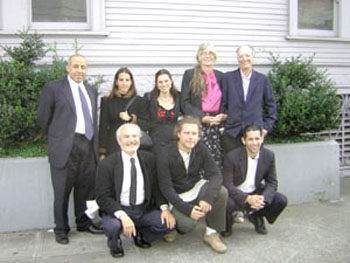- Talk about aims.
- Can the teaching pursue a definite aim?
- The aim of existence.
You need not impose any meaning on life.
The problem is that, instead of living, we are obsessed with the question
of how we can live. Society has created in us the need to do something
to live better and nobler.
- Personal aims.
- To know the future.
- To exist after death.
- To be a master of oneself.
- To be a Christian.
- To help humanity.
- To stop wars.
- G's explanations.
- Fate, accident and will.
- "Mad machines".
- Esoteric Christianity.
- What ought man's aim to be?
- The causes of inner slavery.
- With what the way of liberation begins.
- "Know thyself"
- Different understandings of this idea.
- Self sudy.
- How to study?
- Self-observation.
- Recording and analysis.
- A fundamental principle of the working of the human machine.
- The four centers:Thinking, emotional, moving, instinctive.
- Distinguishing between the work of the centers.
- Making changes in the working of the machine.
- Upsetting the balance.
- How does the machine restore its balance?
- Incidental changes.
- Wrong work of centers.
- Imagination.
- Daydreaming.
- Habits.
- Opposing habits for the purpose of self-observation.
- The struggle against expressing negative emotions.
- Registering mechanicalness.
- Changes resulting from right self observation.
- The idea of moving center.
- The usual classification of man's actions.
- Classification based upon the division of centers.
- Automatism.
- Instinctive actions.
- The difference between the instinctive and moving functions.
- Division of the emotions.
- Different levels of the centers.
|

